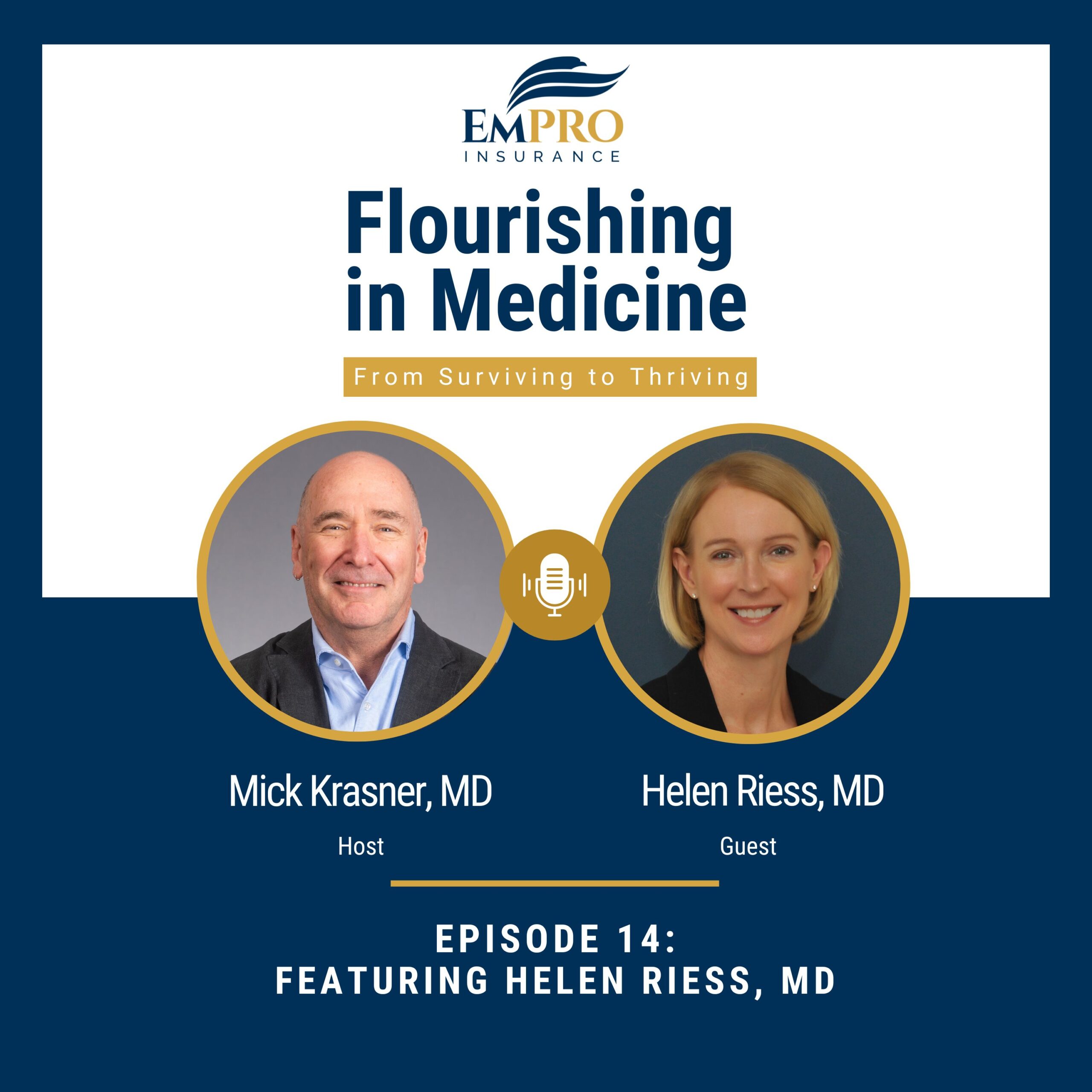Listen to Episode 14 below:
Show Notes:
Our guest today is Helen Riess, M.D. is Chief Scientist and Chairman of Empathetics. Dr. Riess is Associate Clinical Professor of Psychiatry at Harvard Medical School and Director of the Empathy and Relational Science Program at Massachusetts General Hospital. In addition, Dr. Riess is the author of The Empathy Effect and a core member of the Consortium for Research on Emotional Intelligence in Organizations (CREIO) and faculty of the Harvard Macy Institute. Dr. Riess is a psychiatrist who developed an empathy training approach based on research in the neurobiology and physiology of empathy that has been rigorously tested in pilot studies and a randomized, controlled trial at MGH. She completed her residency and Chief Residency at MGH and Harvard Medical School. Dr. Riess has devoted her career to teaching and research in the art and science of the patient-doctor relationship. Dr. Riess received her M.D. from Boston University School of Medicine and her B.A. From Wesleyan University.
In this conversation Dr. Riess shared the influence of her family’s experiences as refugees from war-torn Europe, which sensitized her to trauma and resilience. Her interest in psychiatry began during medical school when she was drawn to understanding the mind and healing through narrative and empathy. While a small percentage of people lack the neural mechanisms for empathy, for most, empathy is a mutable trait influenced by their environment and mental state, and burnout among healthcare professionals diminishes their capacity for empathy, not because empathy is inherently harmful, but due to the overwhelming demands and flawed systems they work within. To address this, Dr. Riess speaks of the importance self-regulation and self-care skills, recognizing the human needs of healthcare workers, and creating supportive, empathetic organizational cultures. Helen discusses four pillars of what she describes as institutional resilience- supporting healthcare workers with safe environments, caring communication, community cohesion, and mental health normalization. She shared results of her investigations into the value of empathy training, demonstrating improved wellness and retention rates, and significantly reduced costs for a medical group. The personal anecdotes she shared illustrate the profound impact of empathetic interactions, both professionally and personally, and the importance of meaningful connections for self-care and fulfillment, all reflections of her infectious passion and inspiration as well as her deep humanity.
Guest:
Helen Reiss MD
Chief Scientist and Chairperson of Empathetics, Director, and Associate Clinical Professor of Psychiatry at Harvard Medical School and Director of the Empathy and Relational Science Program at Massachusetts General Hospital
LinkedIn Page: https://www.linkedin.com/in/helen-riess/
Website for Empathetics: https://www.empathetics.com/
Resources/References:
Dr. Riess’ TEDX Talk: https://www.youtube.com/watch?v=baHrcC8B4WM
The Consortium for Research on Emotional Intelligence in Organizations (CREIO): https://eiconsortium.org/
Riess, Helen. Institutional Resilience: The Foundation for Individual Resilience, Especially During COVID-19. Glob Adv Health Med. 2021 Apr 6;10:21649561211006728. doi: 10.1177/21649561211006728. PMID: 33889440; PMCID: PMC8040559.
About Heinz Kohut and Self-Psychology: https://en.wikipedia.org/wiki/Self_psychology
